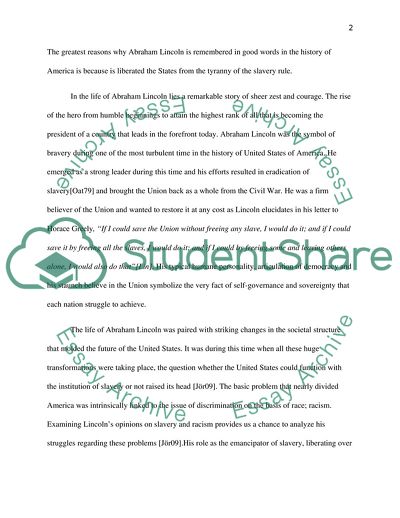Cite this document
(Abraham Lincoln and American Slavery Report Example | Topics and Well Written Essays - 2750 words, n.d.)
Abraham Lincoln and American Slavery Report Example | Topics and Well Written Essays - 2750 words. https://studentshare.org/history/1797912-abrarham-lincoln
Abraham Lincoln and American Slavery Report Example | Topics and Well Written Essays - 2750 words. https://studentshare.org/history/1797912-abrarham-lincoln
(Abraham Lincoln and American Slavery Report Example | Topics and Well Written Essays - 2750 Words)
Abraham Lincoln and American Slavery Report Example | Topics and Well Written Essays - 2750 Words. https://studentshare.org/history/1797912-abrarham-lincoln.
Abraham Lincoln and American Slavery Report Example | Topics and Well Written Essays - 2750 Words. https://studentshare.org/history/1797912-abrarham-lincoln.
“Abraham Lincoln and American Slavery Report Example | Topics and Well Written Essays - 2750 Words”. https://studentshare.org/history/1797912-abrarham-lincoln.


